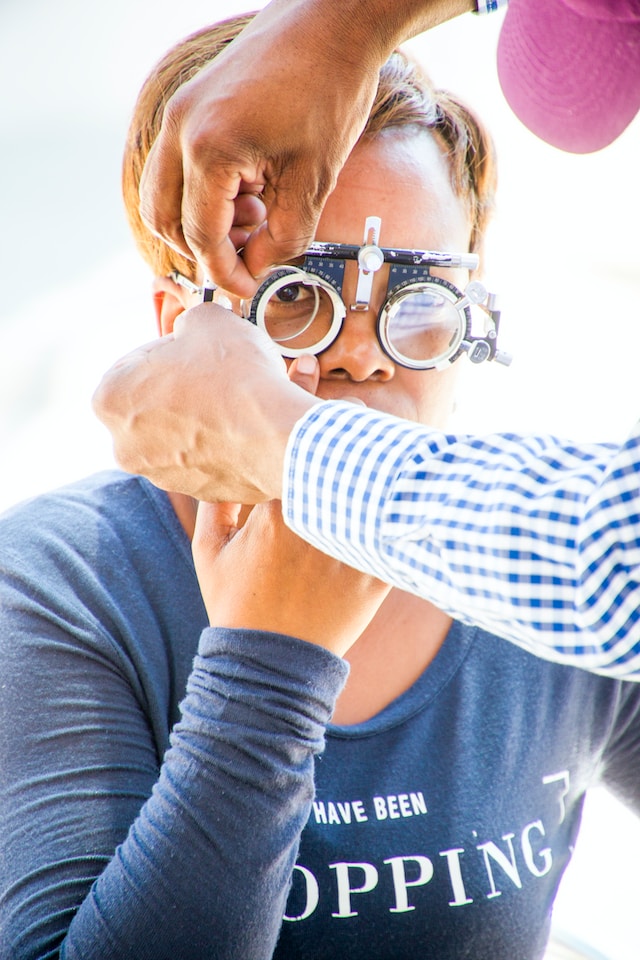Introduction
Eyestrain is common and normal, especially after reading for extended periods or using digital screens. It usually fades when you take a break or follow other tips to relieve it.
A person’s conjunctivitis, often referred to as pink eye, can occur when the tissue that lines your eyelids and covers your sclera becomes inflamed. It can cause redness, itching, tearing, and the feeling that something is stuck in your eyes.
Understanding of Common Eye Conditions
An eye problem can hit you at any age. It may be minor or serious and if it’s not dealt with quickly can cause permanent damage to your eyesight. Getting an annual eye exam and using prescription eyewear as prescribed can help you avoid many of these problems. Keeping an eye on the list of common eye conditions can also help you recognize and treat a potential problem early.
Eye conditions like nearsightedness (myopia), farsightedness (hyperopia), and distorted vision at all distances called astigmatism are refractive errors that result when light passes through the cornea and lens incorrectly. They are among the most common of all eye problems and can be corrected with glasses, contact lenses, or in some cases surgery.
Pink eye is when the tissue that lines your eyes and covers your sclera gets inflamed. Symptoms include itching, red eyes, blurry vision, tearing, and discharge. It is very contagious but a few days of medication can clear it up.
How to treat all of them
When left untreated, some eye diseases can cause permanent blindness. However, with early detection and treatment, many of these eye conditions can be prevented or delayed. It is important to visit your ophthalmologist for regular comprehensive eye exams.
Refractive Errors: Myopia (nearsightedness), Hyperopia (farsightedness), and astigmatism are common eye problems that occur when light bends incorrectly as it passes through your cornea and lens. These refractive errors cause blurry vision and can be corrected with eyeglasses, contact lenses, or surgery.
Diabetic Retinopathy: A progressive disease that affects the retina (back of the eye) and leads to loss of vision. Often, this disease develops without any symptoms or pain, making it difficult to diagnose and treat until you experience a sudden loss of vision.
Retinal Tears and Detachments: If you are experiencing any of the following signs or symptoms, schedule an appointment with your ophthalmologist immediately:
How to choose an eye doctor
The best way to find the right eye doctor is to actually visit them in their office and check out the environment. Take note of how they treat you when you walk in and how friendly they are. You can also observe their bedside manner and how they communicate with their patients. In addition, you should also look for diplomas and licenses hanging on the walls as this is an indication of their education, training, and licensure.
You should also ask your friends and family for referrals as well as check online reviews. It will help you to see what past and current patients have to say about their experience. It’s important to choose an eye care provider that is in-network with your insurance provider and that has a reasonable cost for services. You should also ensure that the practice offers comprehensive services and has both optometrists and ophthalmologists on staff. It is especially helpful for diagnosing complex eye and vision problems. Finally, make sure that the doctors are experienced in treating the specific condition you’re looking to get diagnosed and treated for. For example, if you’re considering laser vision correction for your nearsightedness or farsightedness, make sure that the ophthalmologist has extensive experience performing these procedures. This will ensure optimal results and minimize side effects.
Frequently Asked Questions (FAQs)
Q1: Can eye exercises improve vision?
A1: While eye exercises may help with certain specific conditions, such as eye strain or focusing issues, they are not a guaranteed method to improve vision or correct refractive errors like nearsightedness or farsightedness. Consult with your eye care professional for personalized advice.
Q2: How often should I have an eye exam?
A2: We recommend you to have a comprehensive eye exam every one to two years, or as advised by your eye care professional. Regular eye exams help detect eye conditions early and ensure optimal eye health.
Q3: Are all eye drops the same?
A3: No, eye drops can vary based on their purpose. Some eye drops are designed to lubricate and moisturize the eyes, while others may target specific conditions like allergies or glaucoma. It’s important to use eye drops as directed and consult with your eye care professional for appropriate recommendations.
Q4: Can I prevent age-related eye conditions?
A4: While some eye conditions are influenced by factors like genetics or aging, you can take steps to maintain good eye health. These include regular eye exams, a balanced diet rich in eye-healthy nutrients, wearing sunglasses for UV protection, and avoiding smoking.
Q5: How can I protect my eyes from digital eye strain?
A5: To protect your eyes from digital eye strain, practice the 20-20-20 rule: Every 20 minutes, take a 20-second break, and look at something 20 feet away. Additionally, adjust your screen settings, use proper lighting, and take regular breaks from screen time.
Q6: Are contact lenses suitable for everyone?
A6: Contact lenses are a popular vision correction option but may not be suitable for everyone. You should consider factors such as the health of your eyes, lifestyle, and personal preferences. Consult with your eye care professional to determine if contact lenses are right for you.
Conclusion
Understanding common eye conditions is crucial for maintaining good eye health. By recognizing the symptoms and seeking appropriate treatment, you can address these conditions promptly and preserve your vision. Remember to consult with your eye care professional for personalized advice and regular eye exams to ensure the best care for your eyes.


